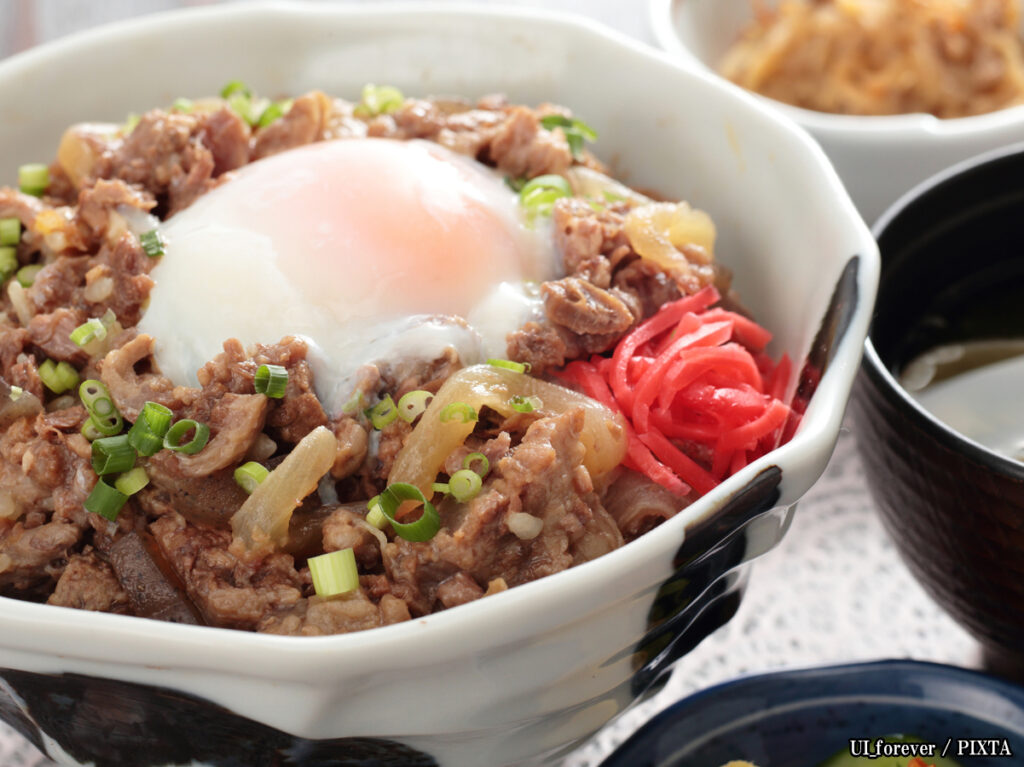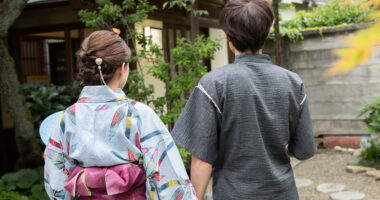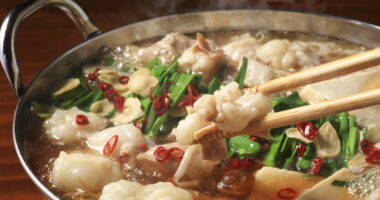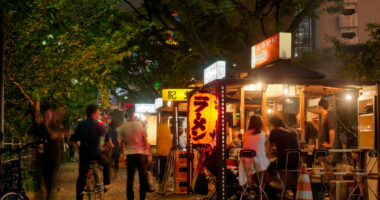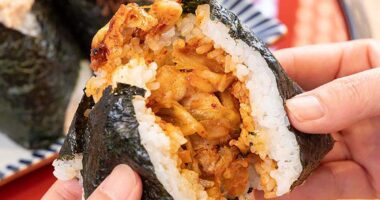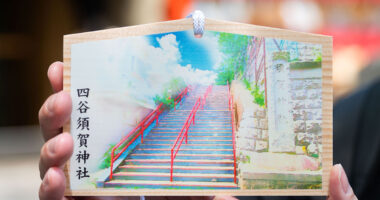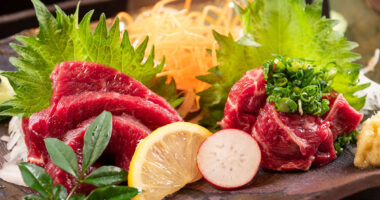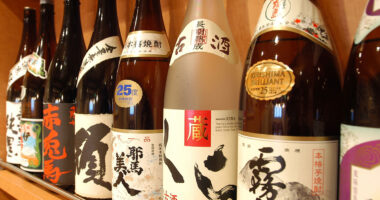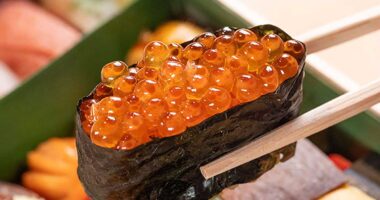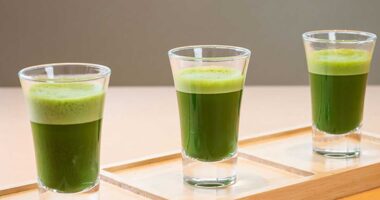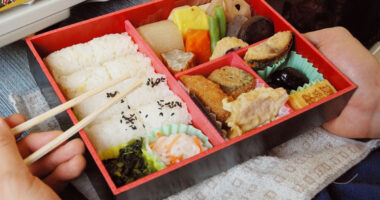With their soft-set whites and creamy yolks, onsen eggs add a luxurious touch to many classic Japanese dishes. Their mild flavor and silky texture pair well with everything from hearty rice bowls to delicate, chilled noodles, enhancing both the taste and appearance of a meal.
You’ll find this beloved ingredient starring in all kinds of cuisine during your Japanese travels—here are 10 dishes where it truly shines.
How onsen eggs are used in popular Japanese dishes
Donburi
Donburi is the umbrella term for rice bowls in Japanese cuisine. Variations include gyūdon (beef), oyakodon (chicken and egg), and tendon (tempura), among many others. A softly cooked onsen egg is a popular addition, with its creamy yolk binding the flavors together.
Where to try it
Donburi is widely available at casual eateries, from quick-service counters to restaurants specializing in rice bowls.
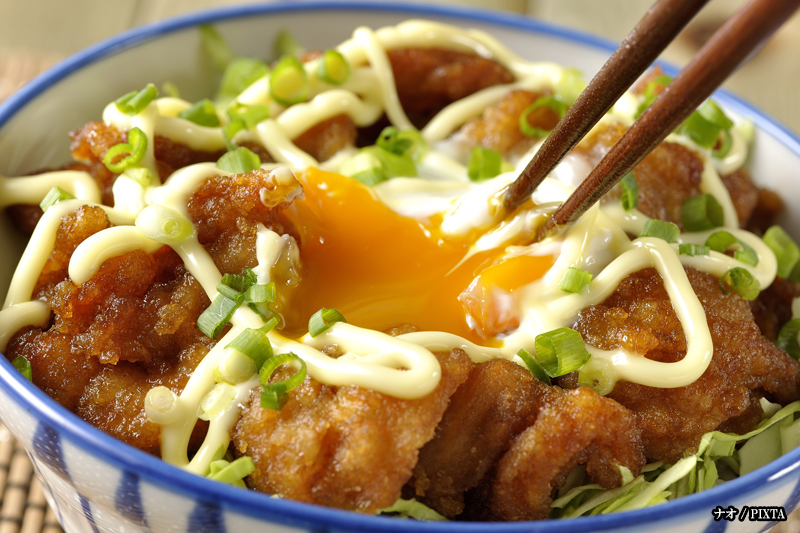
Photo for illustrative purposes
Ramen
Ramen is one of Japan’s most iconic noodle dishes, built on a base of flavorful broth and topped with ingredients like sliced pork, green onion, and seaweed. While onsen eggs aren’t a standard inclusion, many shops offer them as an optional topping, adding extra depth and creaminess to the soup.
Where to try it
Ramen shops can be found across Japan, with regional specialties like Tokyo-style shoyu and Sapporo miso offering plenty of variation—and occasional opportunities to add an onsen egg.
Udon
Udon are thick, chewy wheat noodles served in hot or cold broth with various toppings. Onsen eggs are commonly added to hot versions, where the yolk blends into the broth, enriching the soup and giving the noodles a smoother texture.
Where to try it
You’ll find udon at neighborhood shops, chain restaurants, and noodle counters in train stations throughout Japan.
Soba
Soba are thin, buckwheat noodles served chilled with dipping sauce or in hot broth. As with udon, onsen eggs are occasionally used as a topping, softening the flavor and adding a luxurious, silky texture to the broth or sauce.
Where to try it
Soba restaurants are common across Japan, many offering both hot and cold styles, sometimes with onsen egg options.
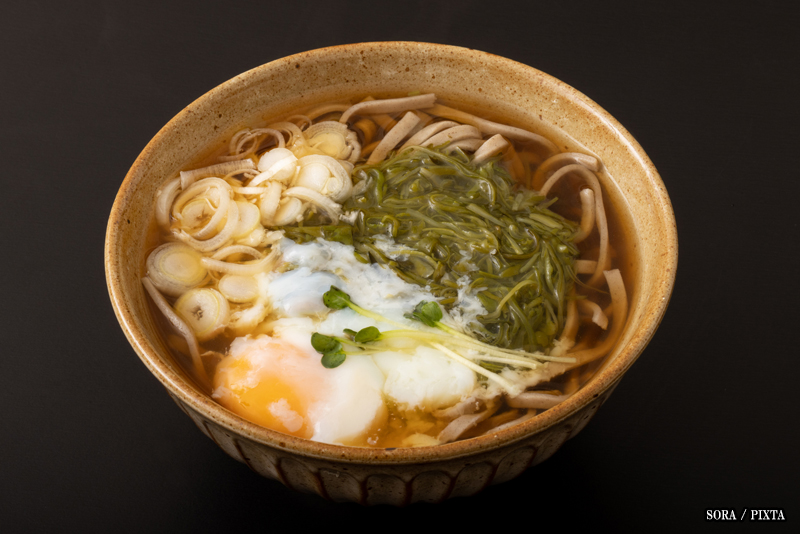
Photo for illustrative purposes
Okonomiyaki
Okonomiyaki is a savory Japanese pancake made from a batter of flour, eggs, and shredded cabbage, often mixed with ingredients like pork, shrimp, or squid. Topping it with a soft onsen egg adds a layer of richness that complements the dish’s bold, savory flavor.
Where to try it
Okonomiyaki restaurants are especially common in the Kansai region but can be found all over Japan.
Japanese salad
Japanese-style salads vary widely but often feature fresh vegetables with a soy- or sesame-based dressing. A soft-cooked onsen egg placed on top adds protein and turns the dressing into a creamy, satisfying coating as it breaks and mixes in.
Where to try it
These salads are easy to find at cafes, casual restaurants, and convenience stores, particularly in bento boxes or set meals.
Takoyaki
Takoyaki are round, savory balls of wheat-based batter filled with diced octopus, grilled in a molded pan until crispy on the outside and gooey inside. Though not traditional, some modern stalls offer an onsen egg topping, which adds a mellow, creamy counterpoint to the sauce and bonito flakes.
Where to try it
Look for takoyaki at food stalls, casual street-side shops, and festivals—especially in Osaka and major entertainment areas.
Curry rice
Japanese curry rice is a classic example of yōshoku—Western-style Japanese dishes adapted to local tastes. It features rich, savory curry over rice, often accompanied by tender meat, carrots, and potatoes. An onsen egg adds a gentle creaminess that rounds out the spice. One variation where it’s especially common is keema curry, a minced meat version frequently topped with an egg.
Where to try it
You’ll find curry rice at specialty curry shops, family restaurants, and in casual dining spots throughout Japan.
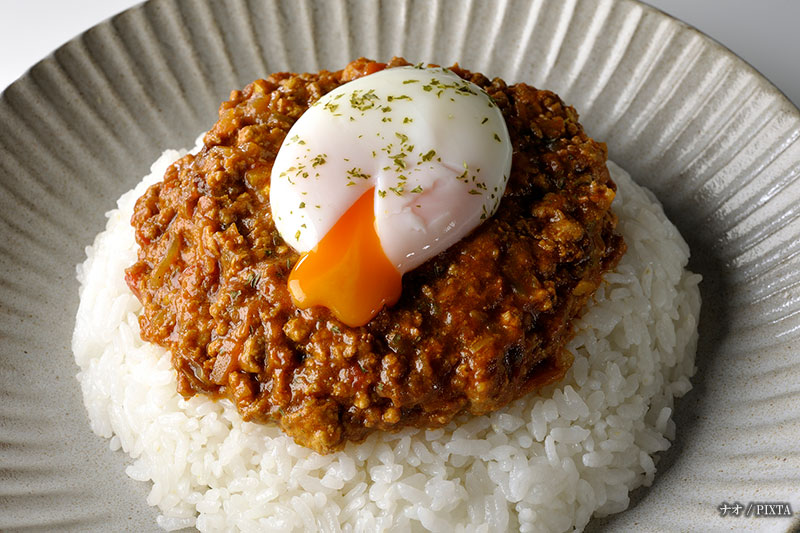
Photo for illustrative purposes
Hamburg steak
Hamburg steak, or hambāgu, is a Western-inspired patty made from seasoned ground meat, often served with demi-glace sauce. A softly cooked onsen egg placed on top blends into the sauce, mellowing the savory flavor and adding creamy depth.
Where to try it
Commonly served in family restaurants and casual yōshoku diners, often as part of a lunch set or daily special.
Bibimbap
Although originally a Korean dish, bibimbap—a colorful rice bowl topped with vegetables, meat, and spicy sauce—has become a familiar option in Japan as well. Many local versions are adapted to Japanese tastes and often come topped with an onsen egg, adding richness and visual appeal to the dish.
Where to try it
Available in convenience stores, lunchbox shops, and Japanese restaurants offering Korean-style dishes.
Final thoughts
From donburi and udon to ramen and okonomiyaki, onsen eggs are a delicious addition to many popular Japanese dishes. Their creamy texture and subtle flavor elevate everyday meals into something truly memorable. If you’re visiting Japan and wondering where to try onsen eggs, look out for them in hot spring towns, local restaurants, and even convenience-store bentos. Exploring Japan’s regional cuisine is one of the best ways to experience its culture, and onsen eggs are a must-try highlight for any food-loving traveler.
